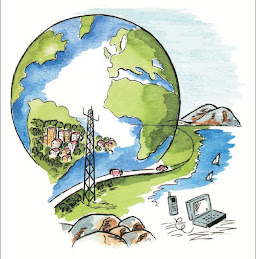Nokia Siemens Launches Low-energy Base Stations
"The Energy Efficiency solution makes good green business sense," said Ari Lehtoranta, head of the Radio Access business unit at Nokia Siemens Networks. "By bringing state-of-the art products and software together with our Services portfolio for operators, we can reduce adverse environmental impact while also generating considerable cost savings for our operator customers."
The four main elements of the solution are:
Minimizing the number of base station sites;
Minimizing the need for air conditioning to cool the sites;
Using the latest base station technology;
Deploying software features that optimize the use of radio access for wireless communications.
Nokia Siemens Networks says that the energy consumption of a base station site can be reduced by up to 70 percent with its Energy Efficiency solution.
Nokia Siemens Networks says that it has achieved energy consumption levels of 800W and 500W respectively for typical GSM and WCDMA base stations. Going forward, the company has set even more ambitious targets: to further reduce the energy consumption of its GSM and WCDMA base stations to the 650W and 300W respectively by 2010.
Building a network with a minimum number of base station sites increases energy efficiency, and intelligent network planning is critical for identifying optimum site locations. The Nokia Siemens Networks Energy Efficiency solution uses software features to increase coverage, thus minimizing the number of required base station sites. The solutions also take advantage of Nokia Siemens Networks planning products to create new types of sites in previously non-viable locations. The Nokia Siemens Networks Flexi Base station, for example, makes it possible for operators to locate complete base stations in places and positions where conventional base stations cannot be located due to limitations on size and weight.
Traditional base station sites are located indoors, where the typical temperature of 25 Celsius is maintained with high energy-consuming air conditioning. By increasing the ambient temperature to up to 40 Celsius, energy consumption can be reduced by up to 30 percent in existing base station equipment.
Nokia Siemens Networks utilizes a wide range of software features to improve base station energy efficiency by balancing consumption according to load. For example, because nighttime base-station traffic is much lower than during peak daytime hours, part of the base station can be shut down or its capacity can be set on power save mode at night. This is handled seamlessly by Nokia Siemens Networks' intelligent network management solution, the NetAct Service Quality Manager. By leveraging the latest innovations in its software solutions, Nokia Siemens Network is helping operators reduce costs by lowering the energy consumption of base stations during off-peak hours -- without any impact on service levels for users of the network





